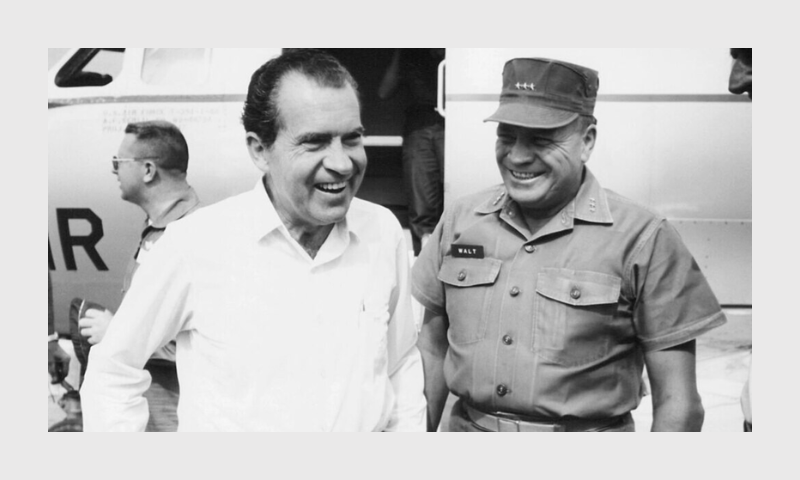Dominic Sandbrook
UnHerd, Jan. 23, 2023
“… some decided not only that American intervention in Vietnam had been a mistake, but that all interventions abroad must be illegitimate or misguided. American isolationism has a long history, but never has it enjoyed a bigger boost than it did in the early Seventies.”
In the course of his troubled presidency, Richard Nixon spoke 14 times to the American people about the war in Vietnam. It was in one of those speeches that he coined the phrase “the silent majority”, while others provoked horror and outrage from those opposed to America’s longest war. But of all these televised addresses, none enjoyed a warmer reaction that the speech Nixon delivered on 23 January 1973, announcing that his Secretary of State, Henry Kissinger, had achieved a breakthrough in the Paris peace talks with the North Vietnamese.
At last, Nixon said, the war was over. At a cost of 58,000 American lives and some $140 billion, not to mention more than two million Vietnamese lives, the curtain was falling. The last US troops would be brought home. South Vietnam had won the right to determine its own future, while the Communist North had pledged to “build a peace of reconciliation”. Despite the high price, Nixon insisted Americans could be proud of “one of the most selfless enterprises in the history of nations”. He had not started the war, but it had dominated his presidency, earning him the undying enmity of those who thought the United States should just get out. But the struggle had been worth it to secure “the right kind of peace, so that those who died and those who suffered would not have died and suffered in vain”. He called it “peace with honour”.
Fifty years on, Nixon’s proclamation of peace with honour has a bitterly ironic ring. As we now know, much of what he said that night was misleading, disingenuous or simply untrue. South Vietnam was in no state to defend itself, and collapsed just two years later. The North Vietnamese had no intention of laying down their weapons, and resumed the offensive within weeks. And Nixon and Kissinger never seriously thought they had secured a lasting peace. They knew the Communists would carry on fighting, and fully intended to intervene with massive aerial power when they did. But then came Watergate. With Nixon crippled, Congress forbade further intervention and slashed funding to the government in Saigon. On 30 April 1975, North Vietnamese tanks crashed through the gates of the presidential palace, and it really was all over. … [To read the full article, click here]


